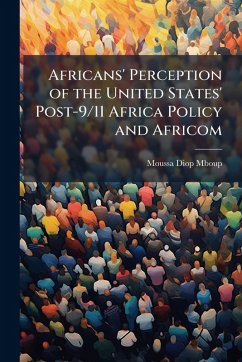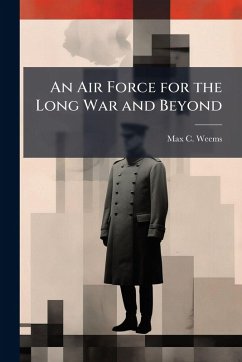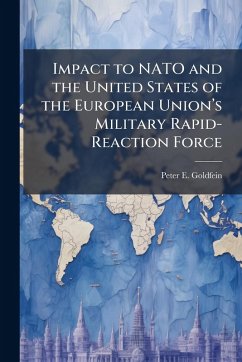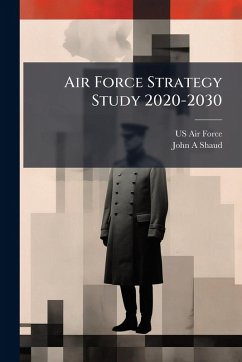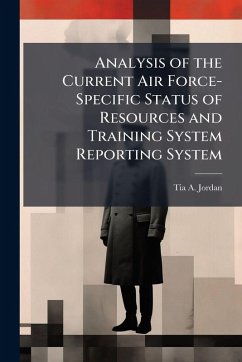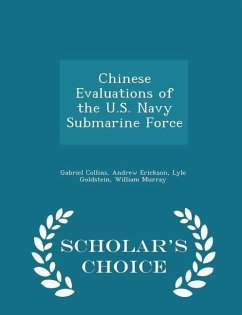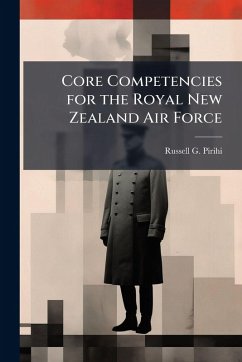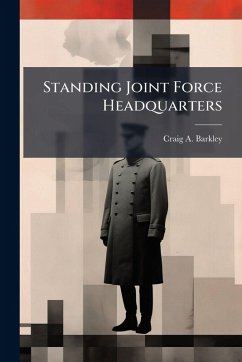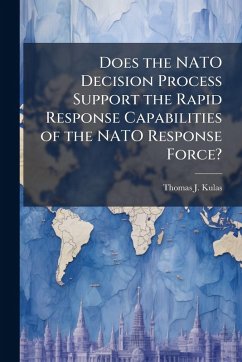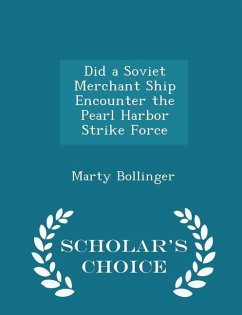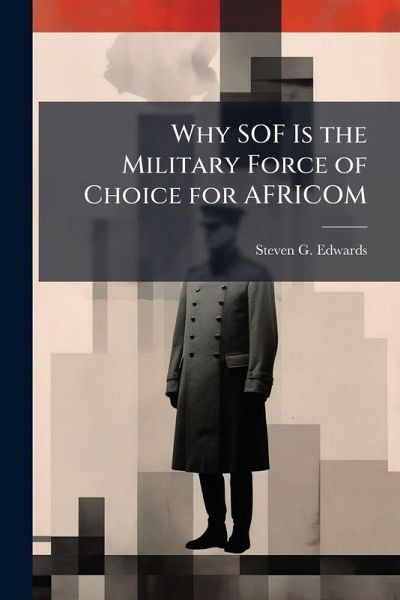
Why SOF Is the Military Force of Choice for AFRICOM
Versandkostenfrei!
Versandfertig in über 4 Wochen
14,99 €
inkl. MwSt.
Weitere Ausgaben:

PAYBACK Punkte
7 °P sammeln!
Until recently, the African continent was viewed by the US as having limited strategic importance. The events of 9/11, coupled with lingering African issues of HIV/AIDS, global trade, armed conflicts and terror, has pushed the US to begin viewing Africa strategically. As a sign of Africa's new strategic importance on the world stage Africa Command (AFRICOM) was established to better integrate the civil and military actions on the continent. However, very little has been discussed on what military forces will be used in conjunction with the interagency organizations within AFRICOM to support it...
Until recently, the African continent was viewed by the US as having limited strategic importance. The events of 9/11, coupled with lingering African issues of HIV/AIDS, global trade, armed conflicts and terror, has pushed the US to begin viewing Africa strategically. As a sign of Africa's new strategic importance on the world stage Africa Command (AFRICOM) was established to better integrate the civil and military actions on the continent. However, very little has been discussed on what military forces will be used in conjunction with the interagency organizations within AFRICOM to support its strategic, operational and tactical goals. The primary missions of the new command has downplayed traditional military roles by concentrating on humanitarian assistance, building partnership capability, civil affairs projects, improving border and maritime security, and professionalization of the militaries on the continent. The purpose of this paper is to demonstrate why special operations forces (SOF) possess the experience and unique capabilities needed to be the primary military force used in support of AFRICOM. This paper will show how SOF possesses the experience to accomplish the wide array of missions required in Africa; experience in working with joint, coalition and interagency partners; culture and language expertise, which allows them to better interact with host nation (HN) personnel; and the ability to keep their footprint small and unobtrusive on the continent. This work has been selected by scholars as being culturally important, and is part of the knowledge base of civilization as we know it. This work was reproduced from the original artifact, and remains as true to the original work as possible. Therefore, you will see the original copyright references, library stamps (as most of these works have been housed in our most important libraries around the world), and other notations in the work. This work is in the public domain in the United States of America, and possibly other nations. Within the United States, you may freely copy and distribute this work, as no entity (individual or corporate) has a copyright on the body of the work. As a reproduction of a historical artifact, this work may contain missing or blurred pages, poor pictures, errant marks, etc. Scholars believe, and we concur, that this work is important enough to be preserved, reproduced, and made generally available to the public. We appreciate your support of the preservation process, and thank you for being an important part of keeping this knowledge alive and relevant.



